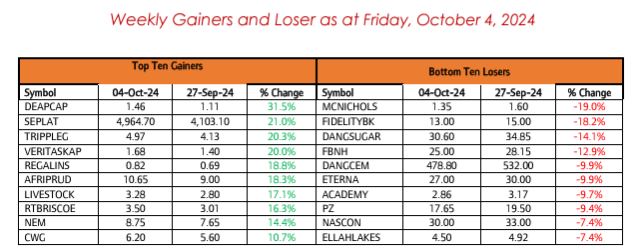The Nigerian government has formalized VAT exemptions for key energy products, while the World Bank approves $1.57bn in loans for governance, healthcare, and power projects. Meanwhile, the Nigerian stock market faces a bearish trend, and the Central Bank is implementing new FX measures for transparency.
The Federal Government of Nigeria has formalized VAT exemption status for key energy products and infrastructure, including diesel, feed gas, liquefied petroleum gas (LPG), compressed natural gas (CNG), electric vehicles, liquefied natural gas (LNG) infrastructure, and clean cooking equipment. These measures align with the current administration’s plans to boost investment and growth in the oil and gas sector while enhancing Nigeria’s global competitiveness.
The World Bank has approved three new loan requests for Nigeria, amounting to $1.57 billion. The funding is divided into $500 million for the Governance Enhancement Program (HOPE-GOV), $570 million for the Primary Healthcare Provision Strengthening Program (HOPE-PHC), and $500 million for the Sustainable Power and Irrigation for Nigeria Project (SPIN). If successful, these programs could improve socio-economic indicators, support agricultural productivity, and boost foreign direct investment.
The Central Bank of Nigeria (CBN) has introduced an Electronic Foreign Exchange Matching System (EFEMS) for foreign exchange transactions in the Nigerian Foreign Exchange Market (NAFEM), which could improve regulatory oversight, enhance transparency, and reduce FX
Foreign Economies
The Bank of Ghana (BoG) has announced the launch of the Ghana Gold Coin to absorb excess liquidity and serve as a stable hedging asset for investors and traders.
In Sub-Saharan Africa, the Kenya National Bureau of Statistics reported a 4.60% YoY GDP expansion in Q2:2024, driven by growth in agriculture, real estate, accommodation & food services, and financial and insurance sectors. However, the country’s headline inflation declined to a 2-year low of 3.60% in September 2024 due to reduced food and transportation prices.
Eurostat predicts a slowdown in the Eurozone headline inflation rate to 1.80% YoY in September, marking the first dip below the bank’s 2.00% target rate since April 2021. The decline in energy prices and services slowdown is a major contributor to this slowdown. The ECB is expected to take a more cautious stance as it monitors macroeconomic indicators and geopolitical tension during its October meeting.

Stock Market
The Nigerian equities market experienced a bearish trend, with the NGXASI dropping 0.95% YoW to settle at 97,520.54pts, bringing the year-to-date performance to 30.41%. This was largely due to selloffs on DANGSUGAR, DANGECEM, and some banking tickers. Across sectors, NGXOILGAS, NGXINS, and NGXCNSMRGDS closed in the green zone, while NGXINDUSTR and NGXBNK closed in the negative territory.
Money Market
The Nigerian OMO auction saw a total of ₦500.00bn offered and ₦737.14 billion subscribed, with the 362-day instrument being the only one sold. The fixed-income secondary market experienced a bearish sentiment, with average T bills yields rising to 21.27% and bond yields increasing to 19.45%.
The Nigerian Eurobonds market was predominantly bearish, with an average yield rising to 9.63%. The risk-off sentiment was fueled by investors’ appeal to Asian instruments due to the Chinese stimulus package. However, stronger demand for SSA instruments is expected next week due to their strong yield position compared to advanced markets.
Comment, Like 👍, share this article, and Follow us on our social media handles.








